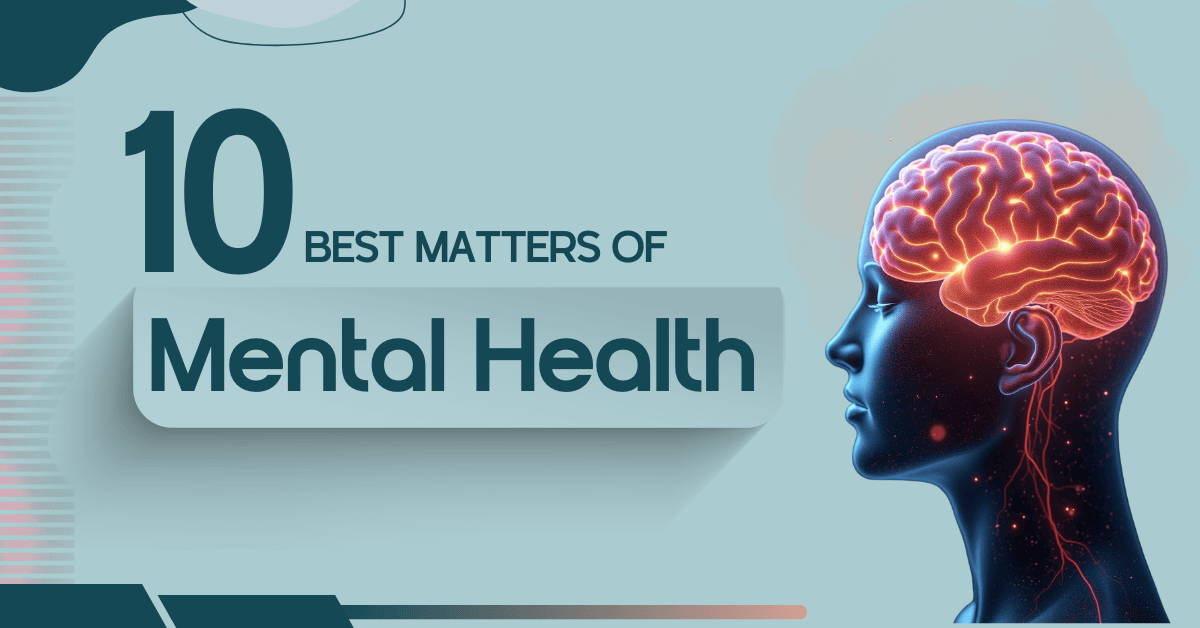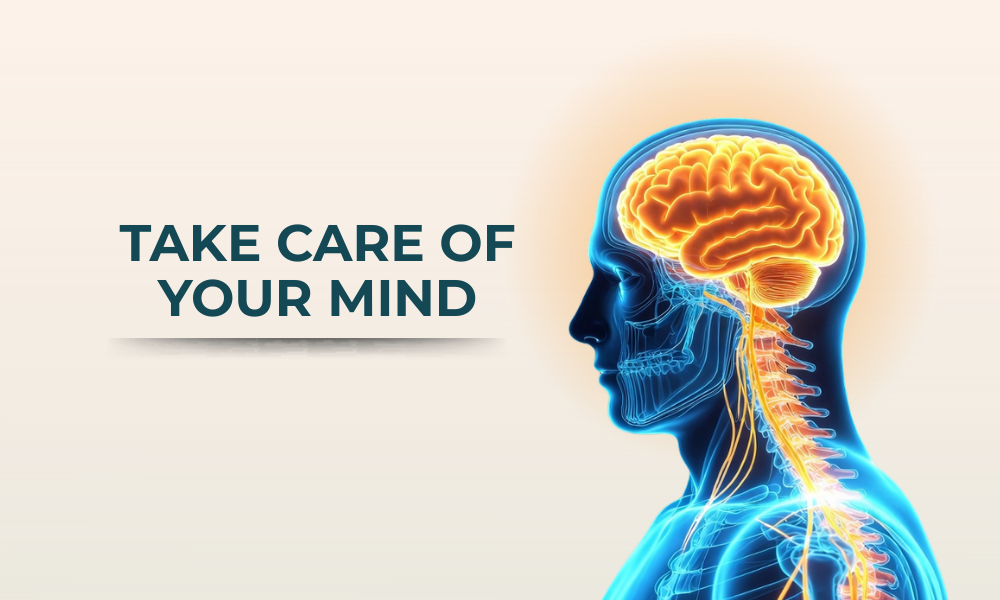Top 10 Reasons Mental Health Matters
Mental health quietly shapes how we think, feel, and move through each day. It has an impact on our relationships, work, physical health, and how we deal with stress, often without our knowledge. When mental health is strong, life feels more balanced and manageable; when neglected, even simple tasks can feel overwhelming.
It affects the choices we make, the energy we bring into our routines, and the way we bounce back from challenges. Supporting your mental health is not only beneficial; it is essential to living a full, connected, and healthy life.
1. Improves Quality of Life
When you're mentally healthy, you enjoy life more. When you're mentally healthy, you can feel more connected and present in everything you do, from hobbies and family time to just relaxing without worrying all the time.
It's not about always being happy; it's about building emotional strength and mental endurance to see what's really important.
Florida surveys show that adults who are mentally healthy are 30% more likely to be happy with their lives.
DPC clinics in Tampa offer quick, low-cost mental health check-ins to help you stay grounded and supported. You don't have to wait months for an appointment.
2. Builds Stronger Relationships
A healthy mind is the first step to a healthy relationship. When your mental health is good, you can talk clearly, listen carefully, and deal with problems with patience.
When your mind is in balance, you're more likely to stay close to friends, family, and even coworkers. It's easier to be emotionally open and trust others.
3. Boosts Economic Productivity
Your mental health has a big effect on how well you can focus, keep track of time, and stay motivated. When you're mentally healthy, you do better at work or school and are more creative and reliable.
Being mentally clear helps you finish tasks more quickly and with less stress, which leads to better performance and success in your career as a whole.
4. Reduces Healthcare Costs
Chronic pain, headaches, and fatigue are physical signs of poor mental health that make people go to the clinic more often and cost more money. Long-term stress can cause heart problems, a weaker immune system, and higher blood pressure.
Taking care of your mental health can help you avoid long-term health problems and save you money on expensive treatments.
Compared to regular insurance, DPC plans in Tampa can save you up to 40% on mental health care costs. You won't have to pay any copays or get surprise bills; you'll just get regular care that saves you money.
5. Supports Physical Health
The body and mind are closely linked. Your mental health affects how well you sleep, eat, and move. It can be hard to stick to healthy habits when you're anxious or depressed.
When you take care of your mind, your body will follow. People who are mentally healthy tend to have better habits and get better faster when they are sick.
6. Reduces Substance Dependency
Many individuals resort to drugs, alcohol, or detrimental behaviors to cope with stress or emotional distress. There are fewer bad ways to get away when mental health is good.
People who are already having a hard time can avoid becoming dependent on drugs or alcohol by going to therapy, practicing mindfulness, and finding healthy ways to deal with stress.
When you combine Tampa recovery programs with regular mental health support, they work better.
A lot of DPC clinics offer care that is private, non-judgmental, and tailored to your needs.
7. Reduces Social Isolation
People who are mentally ill may stop hanging out with friends and family and doing things they used to like. Being by yourself can make you feel even more sad, anxious, and lonely.
When your mind is healthy, you probably want to be around other people, make new friends, and feel more connected to your community.
In Tampa, DPC clinics often have group sessions, wellness meetups, or support groups that help people get to know each other better.
8. Promotes Clear Thinking
A healthy mind helps you remember things, make decisions, and stay focused. You can better figure out what's wrong, make smart decisions, and not get too stressed.
When life throws you curveballs, mental clarity helps you stay grounded, plan ahead, and handle your responsibilities.
9. Helps Manage Stress
Stress is a normal part of life, but how you deal with it is what matters. When you have good mental health, you can stay calm and think clearly when things get tough.
Breathing exercises, writing in a journal, and talking to someone can all help lower stress levels and make you more emotionally strong over time.
10. Promotes Longevity
Mental wellness not only enhances your quality of life but also extends your lifespan. Studies show that having a positive outlook, good mental health, and strong social ties are all linked to a lower risk of disease and a longer life.
Having a positive attitude and good mental habits can really add years to your life.
Why Prioritizing Mental Health Is Worth It
Let’s recap the top 10 reasons mental health matters:
Improves quality of life
Builds stronger relationships
Boosts economic productivity
Reduces healthcare costs
Supports physical health
Reduces substance dependency
Reduces social isolation
Promotes clear thinking
Helps manage stress
Promotes longevity
No matter if you're dealing with everyday stress or just want to feel more balanced, your mental health is important. What is the good news? You don't have to do it all by yourself.
Book a mental wellness check with a Tampa DPC clinic today.
Frequently Asked Questions
-
Mental health is about how you feel, think, and act in social situations. It affects how you think, feel, and act, especially when you're stressed out or facing a challenge.
-
People often don't get medical help because they are embarrassed, can't afford it, or don't have time. But mental health is just as important as physical health, and it's easier to deal with when you have the right help.
-
Yes, Many DPC clinics offer mental health support through talk therapy, coaching, stress plans, and longer appointments where you actually feel heard.
-
Begin small: speak with a trusted provider, monitor your moods, or engage in stress-relieving activities. And if you're in Tampa, schedule a DPC appointment to get started with personalized care.


